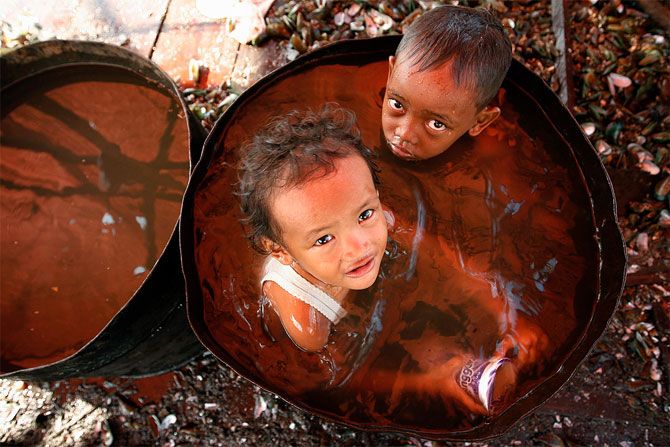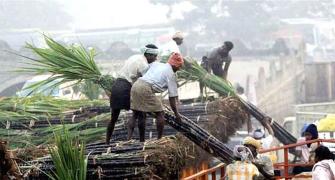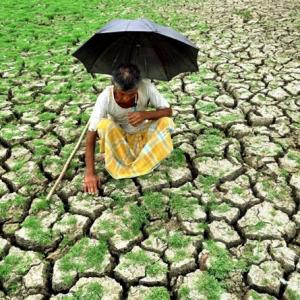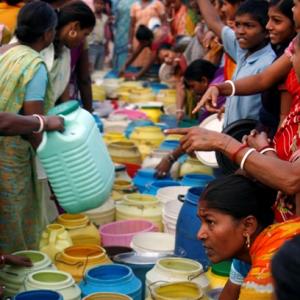The country’s largest consumer goods company Hindustan Unilever says it has been able to reduce its water use by regular metering, monitoring and controlling of utilities consumption at all its manufacturing sites

Coca-Cola and PepsiCo have frequently found themselves in the eye of a storm for being huge consumers of water. To be sure, bottled water and softdrinks are among the key industrial users of water in India.
But, little is known of the water conservation measures that companies have in place. For many of them, it is a serious effort involving everything from rainwater harvesting to sustainable agricultural and production practices to community-level initiatives to help replenish and recharge water-scarce regions and areas.
India Inc, in short, is walking the talk on water conservation, factoring it into its sustainability programmes.
A Coca-Cola India spokesperson said the beverage major monitored its water use ratio, looking at ways to improve it. “In 2014, Coca-Cola India's water use ratio stood at 1.97, which is a 23 per cent improvement since 2010,” the spokesperson said.
The firm’s 2015 water use ratio, however, was not immediately available. Rival PepsiCo, which is a food as well as beverage player, has substituted transplanting of paddy with direct seeding technology that reduces water consumption by 30 per cent.
“In 2014, PepsiCo India brought over 16,000 acres of land under direct seeding and saved more than 11.2 billion litres of water in Punjab, Haryana, Uttar Pradesh, Tamil Nadu and Karnataka,” a spokesperson said. “We are also helping farmers in water-scarce areas in Maharashtra, Gujarat, Karnataka and Haryana with drip irrigation methodology,” he added.
The country’s largest consumer goods company Hindustan Unilever says it has been able to reduce its water use by regular metering, monitoring and controlling of utilities consumption at all its manufacturing sites.
“Rainwater harvesting has been implemented in more than 50 per cent of HUL’s own units. More than 75 per cent of HUL’s manufacturing sites are zero-discharge. Some of the other initiatives have been better run-time strategies for lower use of cleaning water, identifying dry areas in the shop-floor, recovery and re-use of process condensate water and using recycled water instead of fresh water for operations,” a company spokesperson said.
A Godrej Group spokesperson said the group’s green goals included becoming “water positive” by 2020. “Since 2010-11, we have reduced our specific water consumption by 35 per cent by adopting various practices,” the spokesperson said.
Another corporate major ITC says it plans to scale up its watershed development programme to cover 1 million acres of land by 2018. The company, which has been water positive for over 13 years, has brought soil and moisture conservation to half a million acres of land apart from monitoring water use at its plants. But activists group like the Delhi-based Centre for Science & Environment (CSE) said these measures were inadequate.
“India’s water standards remain poor with no enforcement in place to monitor use of water at plants,” said CSE deputy director-general Chandra Bhushan.
“The ministry of environment has now put water standards in place for thermal power units. But there is enormous pressure on the ministry to withdraw these measures,” he added.
Thermal power units are estimated to be largest users of industrial water in India.
According to the CSE, water demand for irrigation will drop to 637 billion cubic metres in 2050 from 675 BCM in 2025, while domestic users will grow to 101 BCM from 66 BCM in the same time and industrial users will grow to 161 BCM from 92 BCM.
Elixir for life
- Coke monitors water usage ratio closely & finds ways to improve it
- PepsiCo has substituted paddy transplanting with direct-seeding tech to cut water consumption by 30%
- HUL has reduced water usage by regular metering, monitoring & controlling of consumption; rainwater harvesting implemented in 50% of own units
- Godrej Group has cut our water consumption by 35%
- ITC to scale up watershed development programme to cover one mn acres by 2018
- Bottled water and softdrink-makers among key industrial users of water
- Others are thermal power plants, iron & steel units, cement factories, sugar mills, pulp & paper units
Photograph: Reuters










